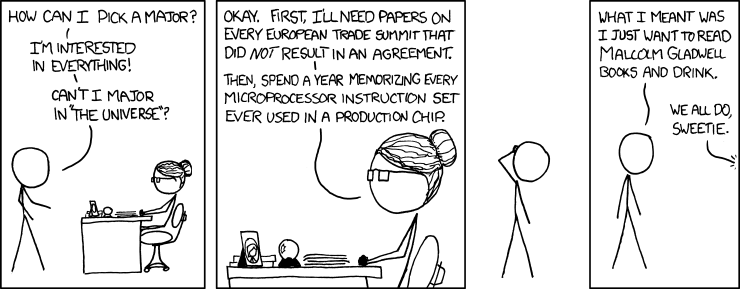Letting Unimportant Tasks Go: Declaring Job Bankruptcy
I've had an interesting couple of years; today I just left my 4th job in 18 months after working at the same company for the first seven years of my career. Most of this was unplanned; one was a failed startup, and two were related to an unexpected move from Boston to San Francisco. Leaving each job always comes with a certain amount of sadness when leaving behind co-workers you enjoyed working with and not being able to see your product vision to its conclusion. However, each departure has also brought this wonderful feeling of being able to let things go that I never seemed to find time to do. You know what I'm talking about; I'm sure you've been putting off replying to that pesky email that's sat in your inbox for months just like I did. This is work that I know is not important, yet I'm never quite able to let it go until I finally have no choice. The relief one feels by letting go should not be underestimated. In fact, it's a shame that one cannot enjoy this relief without having to leave a job. I think that twice a year taking an honest look at everything on my plate and assessing the items that truly can be forgotten will allow me to recharge and focus on important items. In effect, I'm going to declare bankruptcy and get a fresh start. Getting the mental weight of these items today makes me feel like a million bucks right now; I am super excited to start my new job next week with a clean slate.


